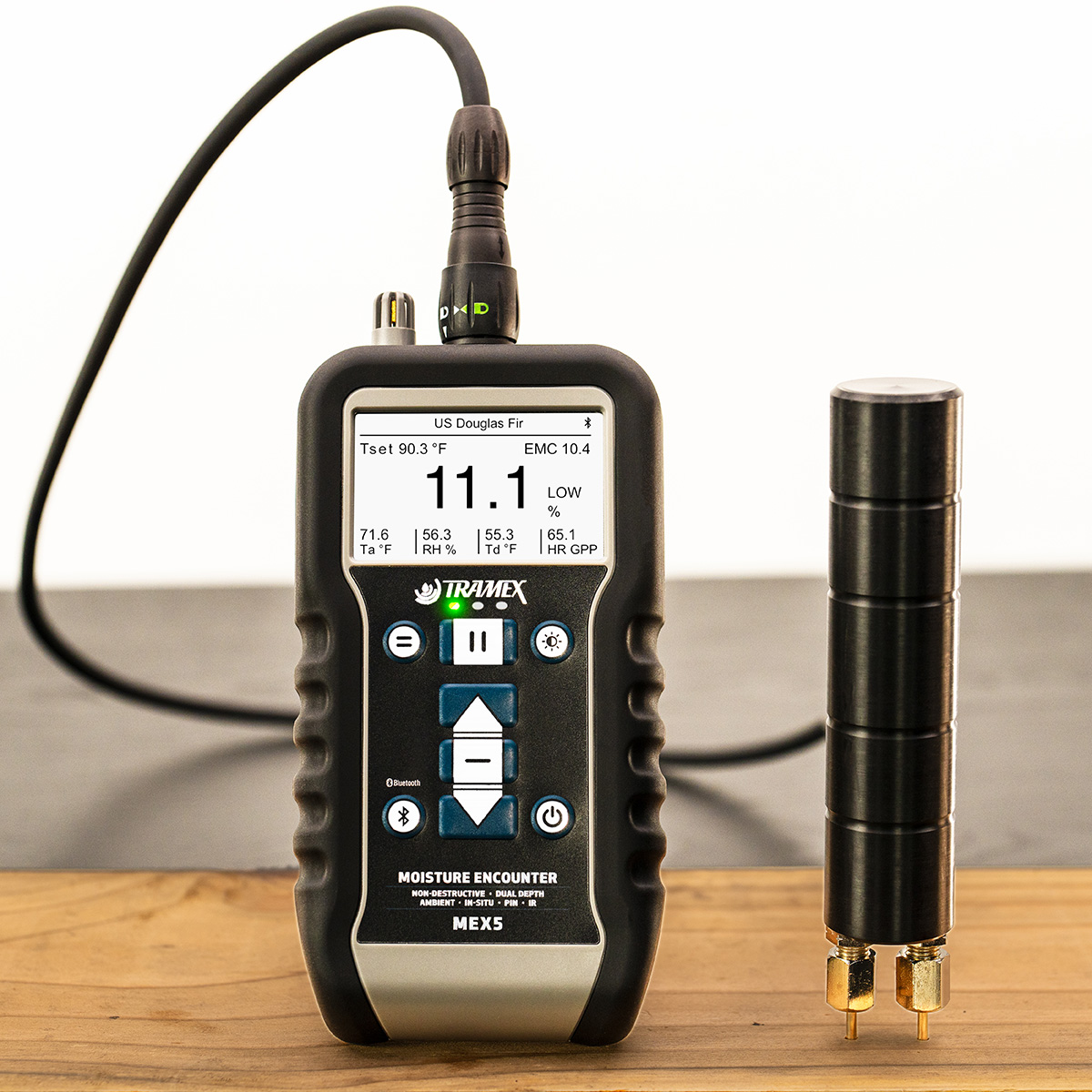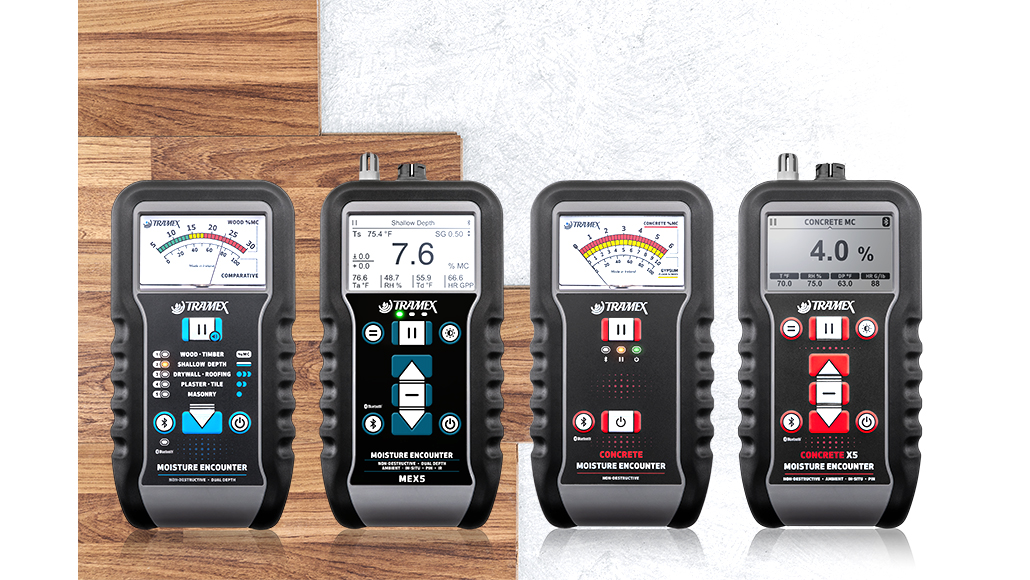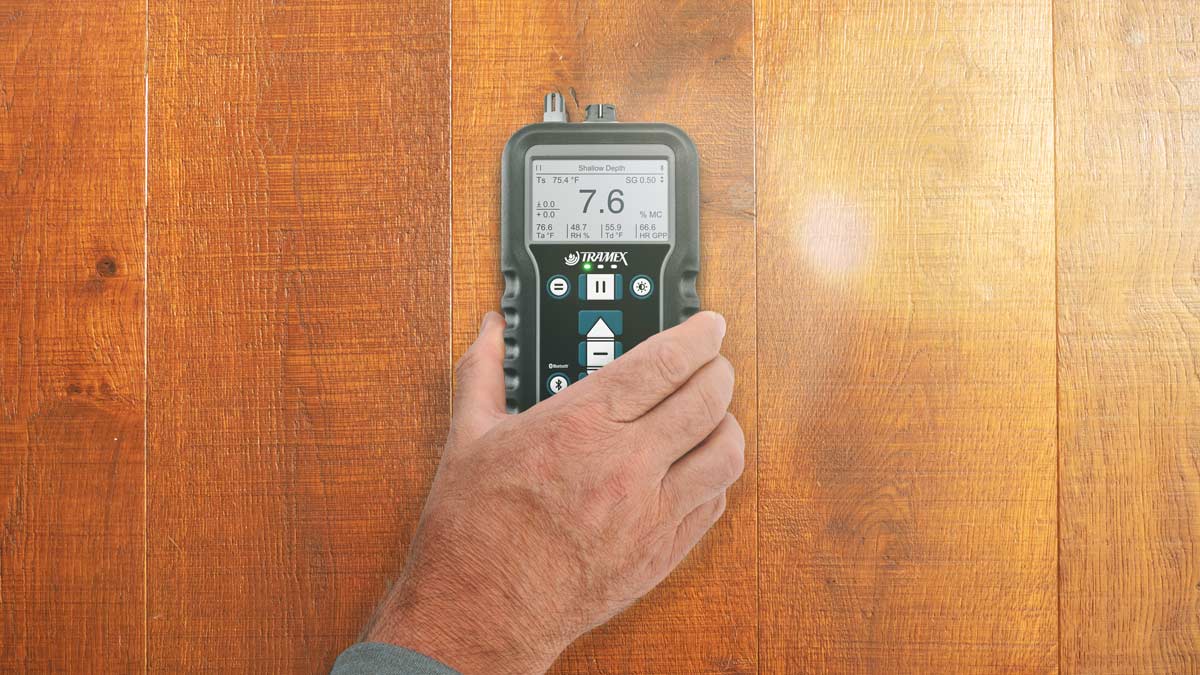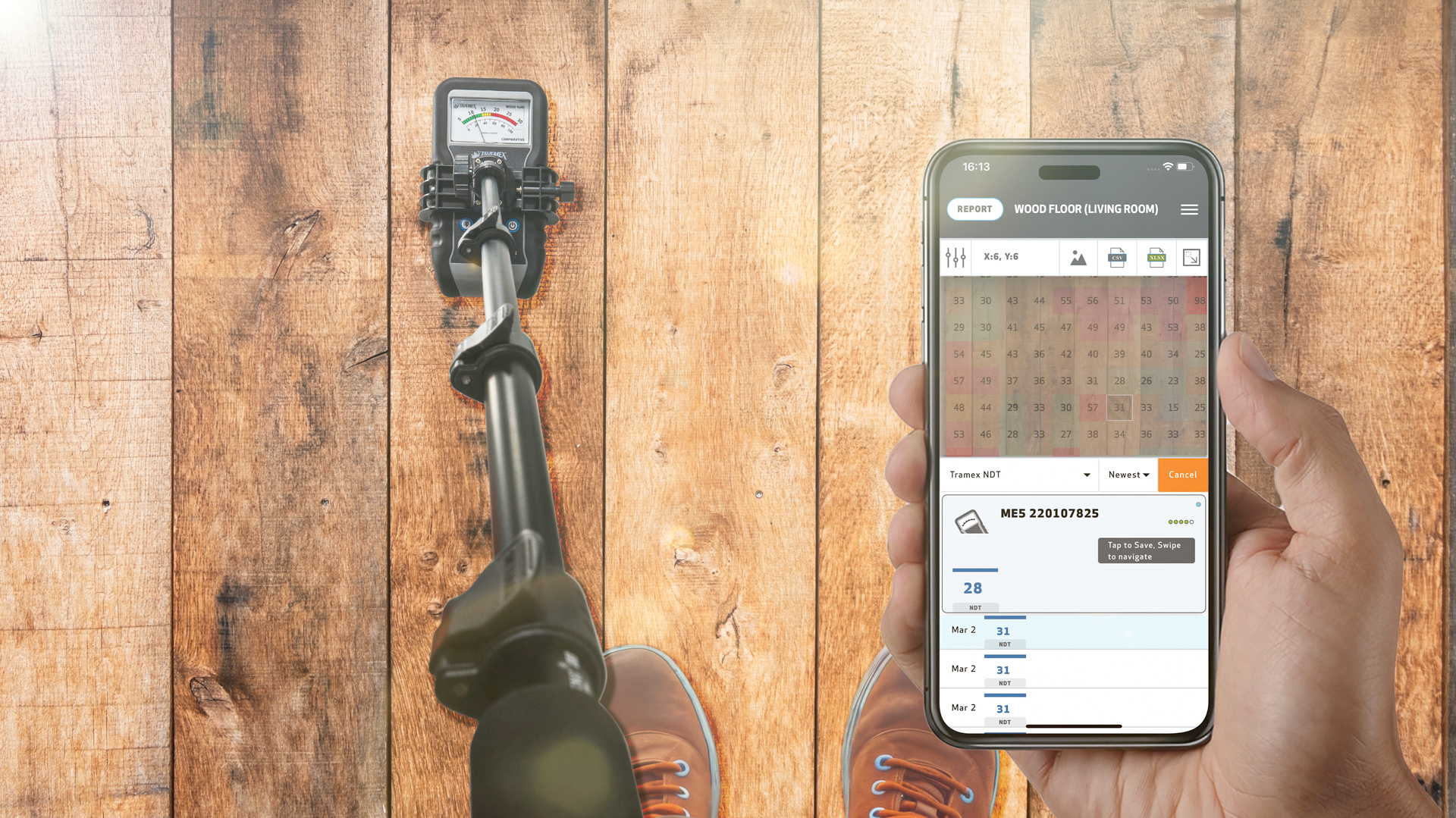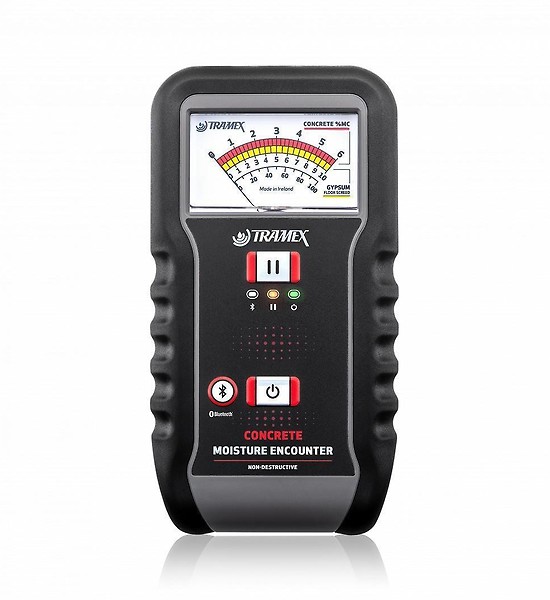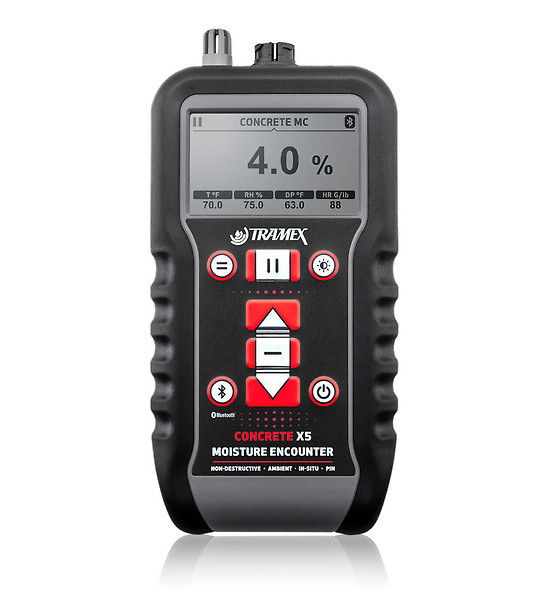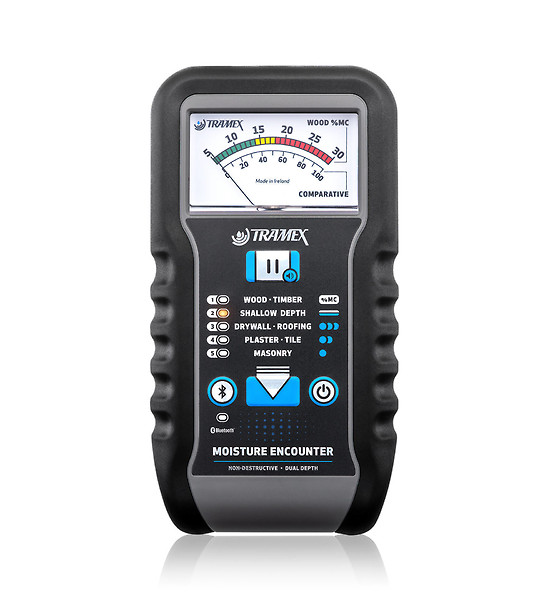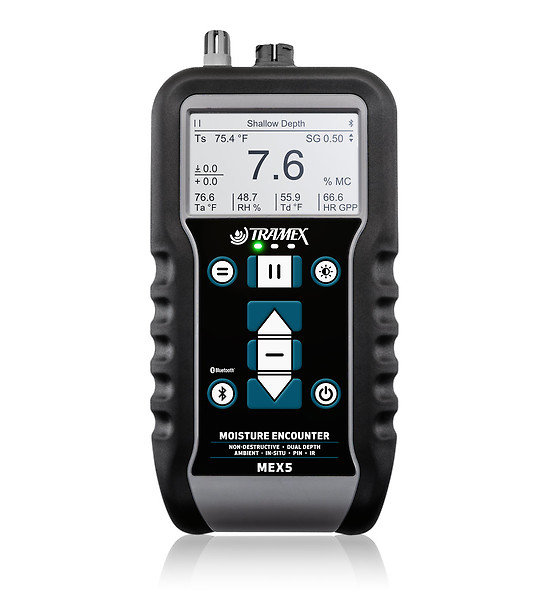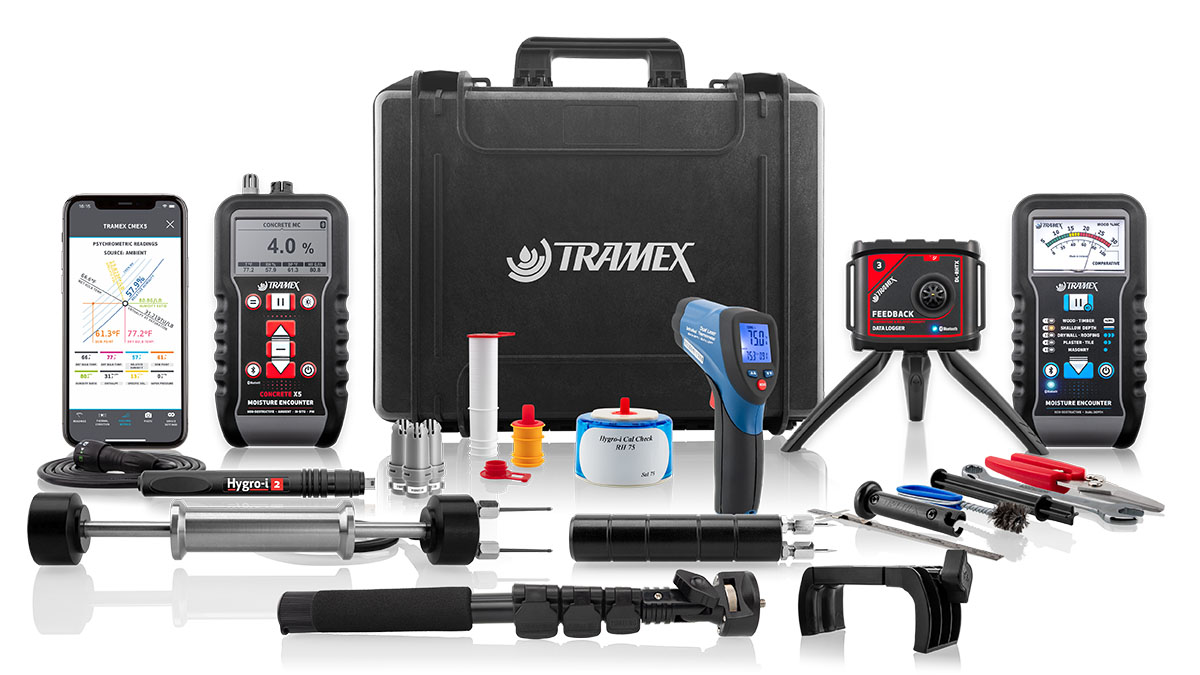Moisture testing during installation of a floor covering
It is vital to check moisture content levels and ambient conditions at and during installation of a floor covering to ensure conditions are conducive for a successful job completion.
MOISTURE TESTING THE SUBFLOOR
Even when a subfloor has been pre tested and deemed dry enough to receive a floor covering it is important to remember that concrete moisture levels fluctuate and are heavily influenced by ambient conditions. A change in ambient conditions, such as temperature, RH and dewpoint, could cause condensation to form on the slab surface which in turn might lead to major issues with the flooring adhesive or the actual floor covering material resulting in a costly floor failure.
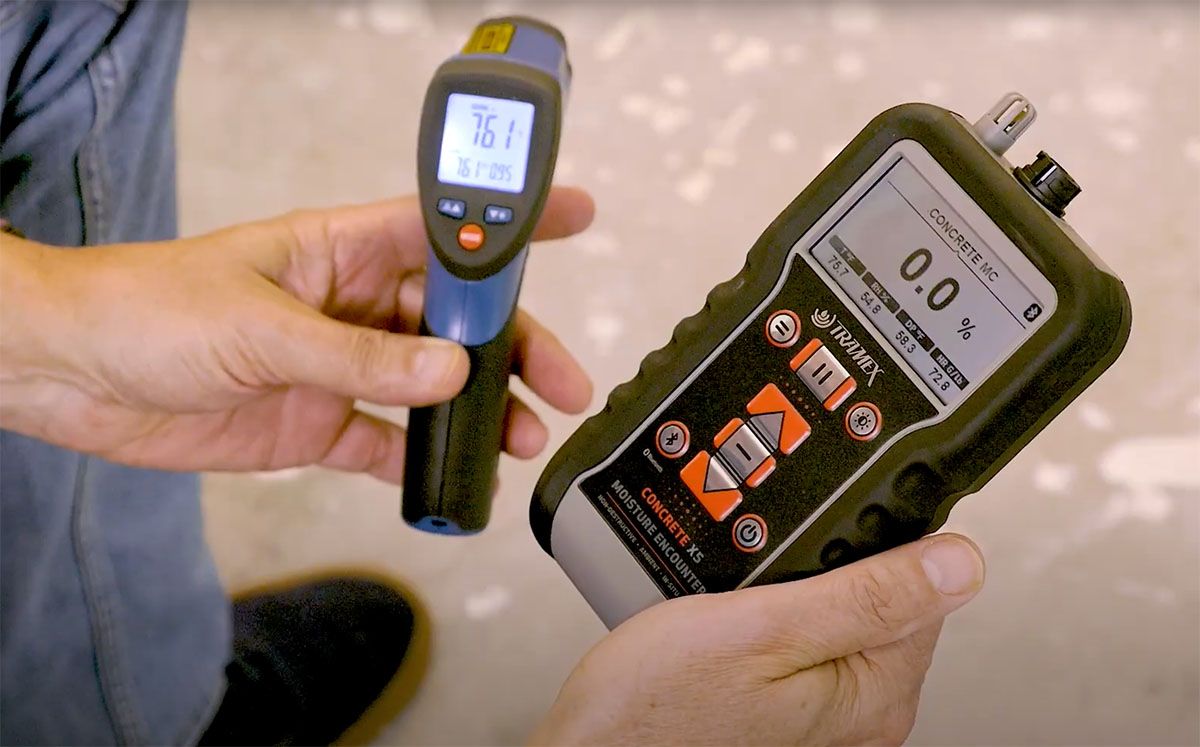
It is therefore important to carry out the Installation Quick Check Test before laying the floor or applying a coating. This moisture test can be carried out fast and effectively with the Tramex Installation Quick Check Kits.
It is crucial to check the manufacturer's guidelines regarding moisture content and ambient conditions specific to their floor coverings, adhesives and coatings.
MOISTURE TESTING THE FLOOR COVERING MATERIAL
Floor boards are generally stored in the room where they will be laid, so that the wood acclimates to the ambient conditions. Wood should be left to acclimate so as to eliminate the chance of warping, shrinking or any other kind of damage.
It is important to follow flooring manufacturers guidelines concerning the acceptable moisture content on the subfloor and the moisture content of the flooring material. Hardwood flooring materials can be tested with a pin probe such as the heavy duty pin probe and the Concrete Moisture Encounter CMEX5 or with the non-destructive wood moisture meters Moisture Encounter ME5 or Moisture Encounter MEX5 using the wood scale. Making sure that both the subfloor and the flooring material have the recommended moisture content readings, helps ensure a successful flooring installation. Check out the Tramex Flooring Inspection kits to find a kit suited to your testing requirements.
